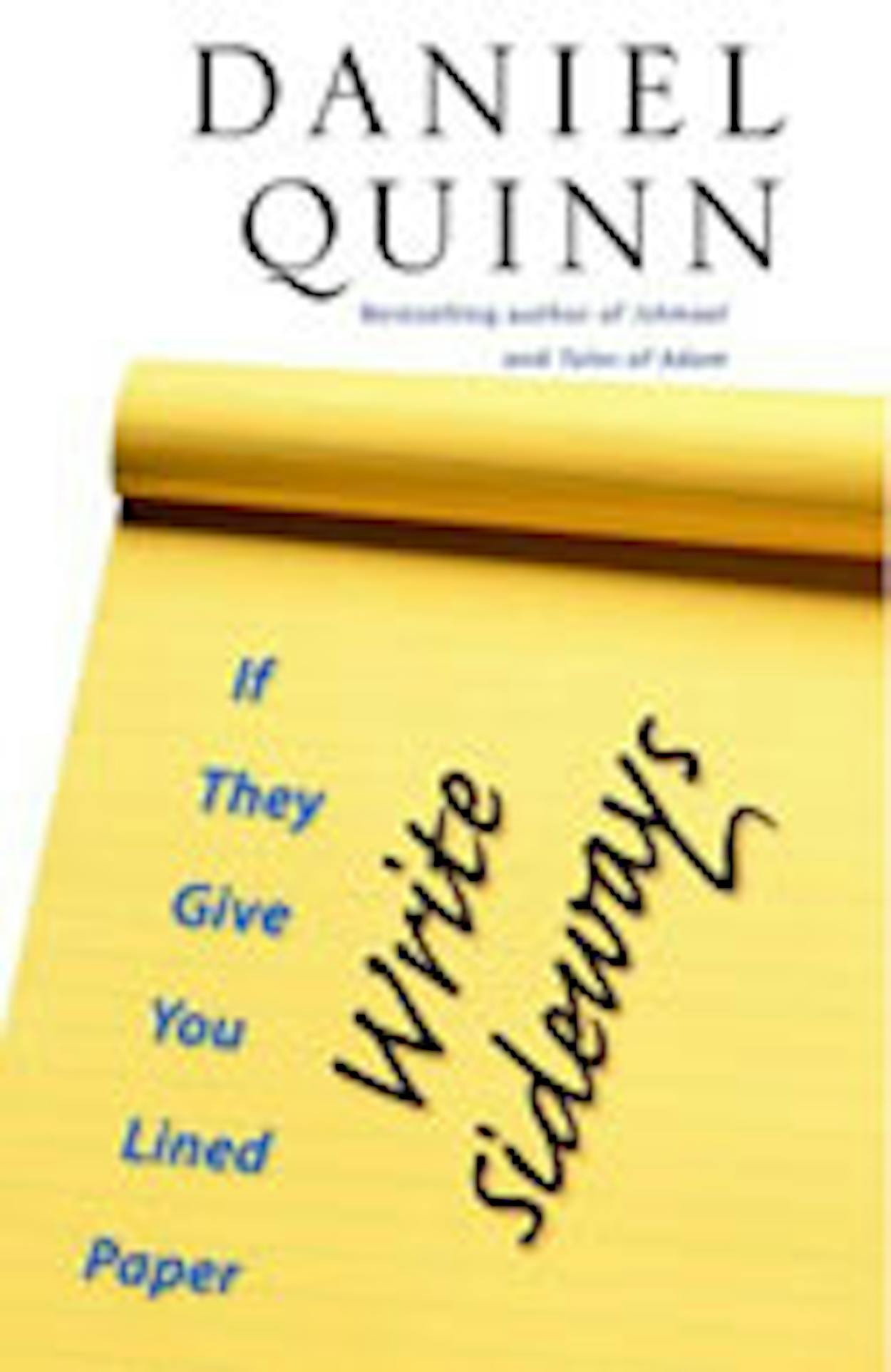The Houston-based author first reached a widespread audience with his innovative novel Ishmael. His new book, If They Give You Lined Paper, Write Sideways, attempts to explain how he derives his ideas.
Your book is drawn from a transcribed dialogue between you and a woman named Elaine. How did you decide on that format? Dialogue is, to me, the most perfect example of synergy: the working together of two things to produce an effect greater than the sum of their individual effects—in this case the two things being two minds.
What should a reader know about Elaine? In the preface, I say that I received a letter from a reader who wondered if she might spend some time with me to “nail down” the ideas she had explored in my books. If I felt readers should know more about Elaine than this, I would have put in more. As it is, in the course of the book you learn a great deal about her character and her mind, which are the things that count here.
You liken your frame of reference to “that of a Martian anthropologist.” What role does that play in your creative process? I try to see our culture from a vantage point far removed from our own. For example, the Martian anthropologist observes that for us, “action” is good, even if it doesn’t work—as in, for instance, the war on drugs.







